Turunç Village School

It’s been a good many years since I was summoned to a Headmaster’s office. Back then, it meant standing outside, head bowed, anticipating the inevitable punishment that was to come. Earlier this week, on a hot June afternoon, I had a meeting of an altogether more pleasant sort with the inspirational Head of Turunç Village School, Ali Özbek. With my trusty “Girl Friday” Amanda Kartal alongside, I spent a really enjoyable time chatting to Mr. Özbek about the vital role that the school plays in the life of the village and about his plans and aspirations for the young people he calls "the citizens of tomorrow".
Turunç School is on the right hand side of the road as you enter the village. Opened in its current location in 1965 it now provides education for around 160 children from Turunç and the surrounding villages of Amos, Kumlubük and Dereözü. There are actually three main buildings on the site:
- The Primary school has 97 pupils aged 7 to 10
- The Secondary school has 63 pupils in the 11-14 age group
- The brightly-coloured Kerpiç Okul (“Adobe”) building houses the nursery class and dining hall and was built in 2012 by volunteers using locally sourced, ecologically friendly materials
In addition to Mr. Özbek, there are six primary and eight secondary teachers – that’s a pupil-to- teacher ratio that many UK schools would envy. The school year runs from September to June with a mid-year break in late January. Our visit takes place a couple of days before the start of the long summer vacation. There is an informal feeling about the place – I am told that teaching is pretty much finished and that children are completing projects and preparing for the holidays. Despite the heat and the relaxed atmosphere, behaviour seems impeccable: no running, yelling or horseplay. As the kids head in from their lunchtime break, I see one little girl pick up a water bottle that someone has discarded and put it into a waste bin.
The curriculum is much like that in other counties. At Primary level this includes Turkish, maths, geography, art, music and PE. Social Studies and Biology get added to the curriculum in the Secondary school. English is taught at all stages from primary year 2. The school is well equipped with IT facilities and is especially proud of its science lab which owes much to the fund-raising work of Turunç Women’s Group.
'Happiness' is a word that comes up frequently in my discussion with Mr. Özbek. “We want to make it possible for every child to excel and whatever he/she is good at” he tells me. “But”, he adds, “the key to good learning is happiness, and for a child to be happy she/he has to be loved”. When I ask about the challenges he faces here in Turunç, I expect government bureaucracy, funding, staff recruitment, etc. to be mentioned - and I am sure that some of these are indeed frustrations. However, the biggest challenge he cites is “parents that don’t care”. “I have a great teaching staff”, he assures me, “but the role of parents is equally important.”
I am, of course, completely reliant on Amanda for translation, but somehow Mr. Özbek’s passion for this school and its children seems to transcend our language barrier. He has only been Head for a year, but is already highly regarded by parents and the school's achievements (yes – they have them in Turkey too!) – bear that out. There are 17 similar public schools in the Marmaris area and Turunç School is #5 in this peer group. And, it's clear that his ambitions do not stop there with plans to "prepare children for the modern world" with knowledge of technology and a computer tablet for every child. That’s a great aspiration for the children of the village.
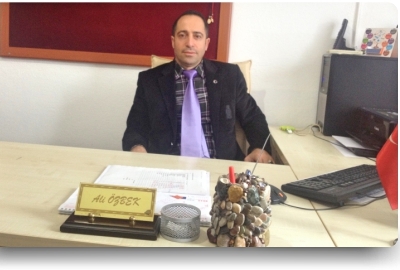
“I want this school to be preparing the professionals - the lawyers, the doctors - of tomorrow’s Turkey”
“How does tourism affect the school?” I ask. “Good and bad” – he answers honestly. “Many parents work in the tourism sector – that means long hours away from their children during the summer break. The benefit though, is the interaction that children can have with other cultures: I positively encourage my pupils to make friends with foreign visitors and learn new things from them” – I found that a really refreshing perspective.
We get around to talking about school projects and he is quick to point out the invaluable role of the PTA in raising funds for investments that either wouldn’t get done or would take years to receive government funding. His next pressing project is to provide proper seating for all pupil ages. At the moment, pupils sit on old wooden benches – all of the same height: remember, pupils range from 7 to 14 years old. That seems such a basic requirement and one which has to be fundamental to good attention and learning. It costs 2,500TL (about £600) to equip each class (there are eight of them). Expect to see fundraising initiatives by the PTA in the coming months and do please support them – knowing that your contributions will be well used.
His other project has a lighter theme but it’s one to which he is equally committed. The school already has a small vegetable garden and he has ambitions to expand this to include livestock such as hens and even possibly bees. He sees this project both preserving the farming traditions of the area and helping the children learn responsibility for their own initiatives. I for one can’t wait to see School Honey on sale in the village.
Before we leave, he asks me that, when this interview is published, to be sure to pass on his thanks to all visitors and expat residents for supporting school fundraising initiatives. “Anyone who would like to see how their contributions have made a difference to the school is welcome to visit” he tells me – and I believe that’s a sincere invitation.
My guide for the day, Amanda Kartal, is co-chairperson of the Parent Teacher Association. The PTA does amazing work and, over the years, has raised thousands of lira to help the school carry out essential projects which improve the childrens' education. Please look out for and support their fundraising projects when you visit Turunç.
 The school has two excellent websites for the
Primary (a short movie) and
Secondary
schools. Sure, they are in Turkish but there are some great pictures to enjoy.
The school has two excellent websites for the
Primary (a short movie) and
Secondary
schools. Sure, they are in Turkish but there are some great pictures to enjoy.
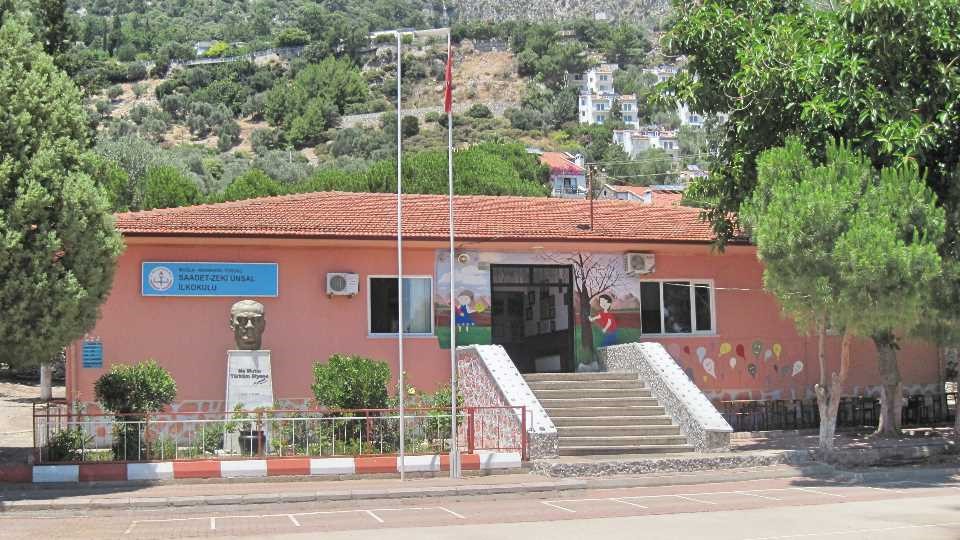

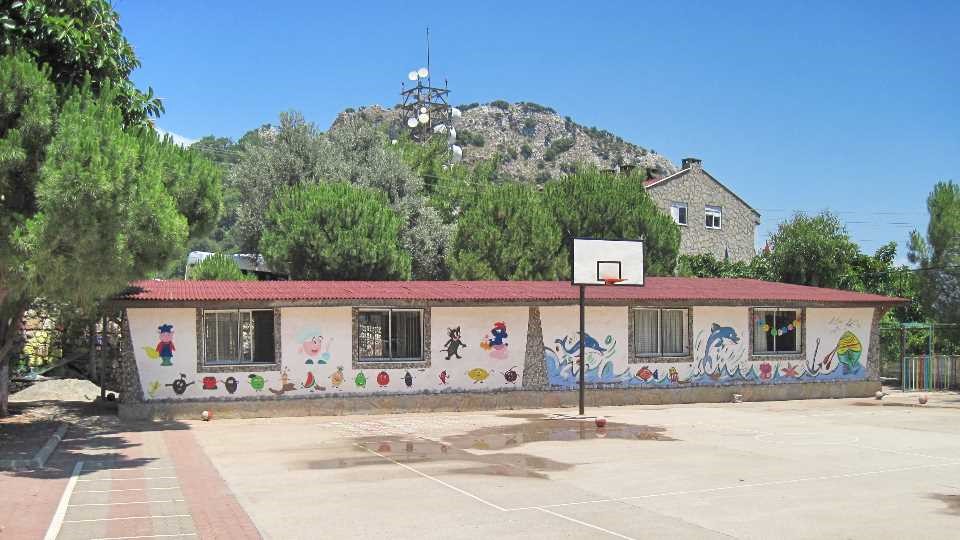

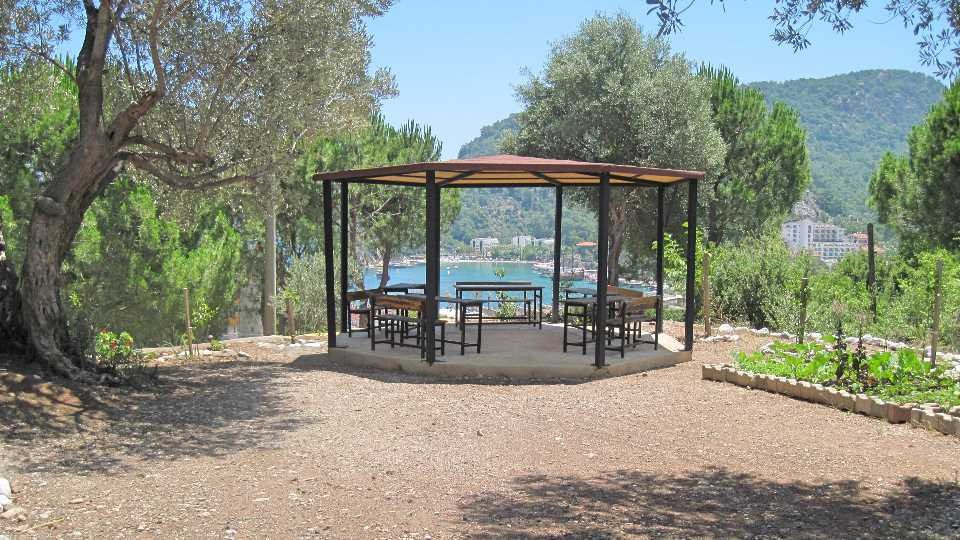





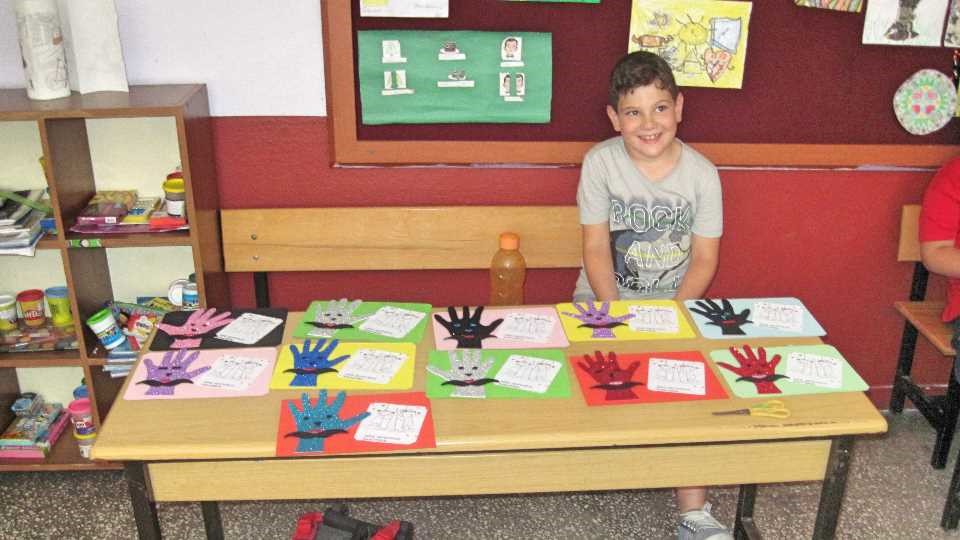
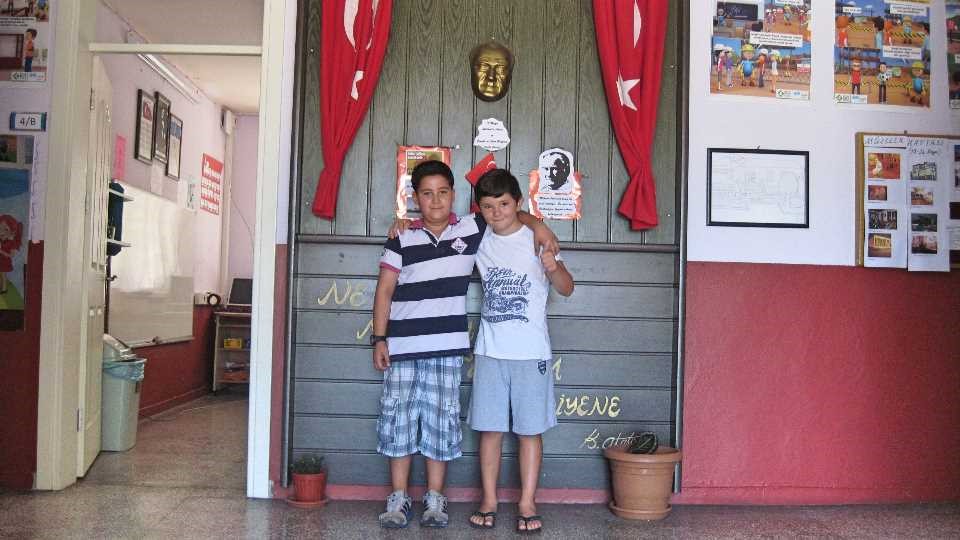
 1
1 2
2 3
3 4
4 5
5 6
6 7
7 8
8 9
9 10
10 11
11 12
12